Introduction
We all need to be proficient and confident when using a computer and software in order to fully participate in a rapidly changing world.
As the expected level of skill has increased in ICT, the focus of study has changed from a skills-based subject to one that requires understanding and application.
We have embraced this change by adopting a more flexible approach to allow students to make informed decisions and to personalise their learning. Students have opportunities to:
- Use ICT to create solutions and solve real world problems.
- Study and use new technology and technological systems in school, at home and in a global society.
- Develop an understanding of how computers work, programming languages and games design.
- Demonstrate creativity and use their own initiative to inspire others.
What do students study in ICT?
Key Stage 3 Curriculum Overview
7.1 Transition Expectations + eSafety (3 lessons)
Game Making (Make Code)
7.2 Intro to HTML - All About Computer Hardware
7.3 Internet Safety Week (1 lesson)
Binary and Binary Images
7.4 Rapid Router (1-30) - Block Based Programming and Algorithmic Thinking
7.5 Intro to Python - Text Based Coding
7.6 Grand Design (TinkerCAD CodeBlocks)
8.1 eSafety (3 lessons)
Physical Computing- Microbit Hardware with Python coding
8.2 HTML & CSS - All About Computer Software
8.3 Internet Safety Week (1 lesson)
Data Representation
8.4 Rapid Router (40+) - Block based to Text Programming and Logical Thinking
8.5 Python Adventure Story - Text Based Coding
8.6 Flowgarithm (2 lessons)
TinkerCAD CodeBlocks (3 lessons)
9.1 eSafety (3 lessons)
Game Making (Make Code)
9.2 HTML + CSS Website - All About Future Tech
9.3 Internet Safety Week (1 lesson)
KS4 Tasters (x2 GCSE Computer Science lessons) + Robotics using VEX VR
9.4 App Creation All About Networks (Thunkable)
9.5 Python AI Chatbot - Text Based Coding
9.6 Flowgarithm (2 lessons)
TinkerCAD CodeBlocks (3 lessons)
Key Stage 4 Curriculum Overview
Students will study the following: The purpose and content of pre-production (uses of mood boards, mind maps, visualisation diagrams, storyboards, scripts); Planning pre-production; Produce pre-production documents; Review and identify areas of improvement for pre-production documents (format , clarity, content).
Students will study the following: The purpose and content of pre-production (uses of mood boards, mind maps, visualisation diagrams, storyboards, scripts); Planning pre-production; Produce pre-production documents; Review and identify areas of improvement for pre-production documents (format , clarity, content).


